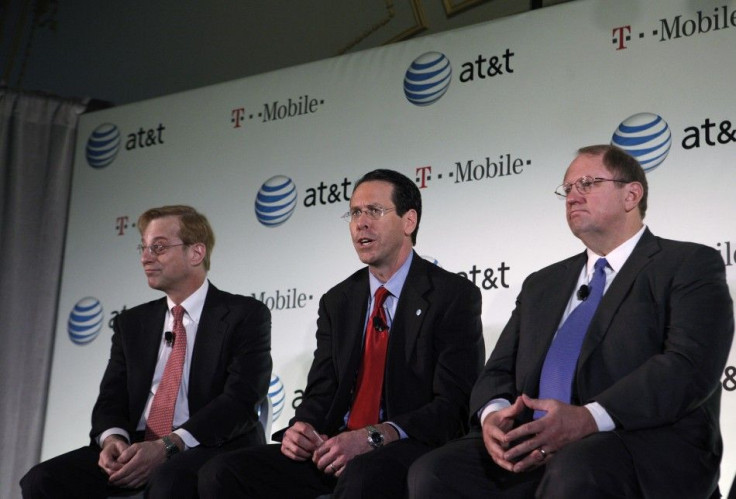AT&T Buy Of T-Mobile To Face Tougher Scrutiny

The $39 billion merger of T-Mobile USA with AT&T would represent one of the biggest wireless mergers of the last several years, is likely to face regulatory scrutiny. But odds are it will still go through.
One reason is the sheer size of the deal and the concentration of the market. With the acquisition of T-Mobile, AT&T will add 33.7 million subscribers to its existing 94.1 million. Verizon has some 94.3 million customers. The T-Mobile buy, if approved, would put AT&T well into the top spot.
The FCC issued a report last year, which covered the wireless market through 2009. The report says that concentration in the wireless market has increased. Using what is called the Herfindahl index, which measures the weighted market share of several providers, it found that the average of the index is more than 2800 (a market with four competitors with equal market share would be 2500). The Department of Justice guidelines say a merger should be subject to scrutiny if the index after the transaction would be more than 1800.
AT&T has argued that the merger should be looked at on a market-by market basis, rather than in the country as a whole. In some markets there are several wireless providers, though the big four still dominate.
Another concern is pricing. T-Mobile has tended to offer cheaper plans than AT&T or Verizon. It has also offered a technological alternative - the company offers GSM phones (as does AT&T) while Verizon and Sprint offer CDMA.
Andrew Jay Schwartzman, senior vice president and policy director of the Media Access Project, which opposes the merger, said the deal is likely to face bigger hurdles than previous mergers. In the past, not only were there more providers, but the FCC had been under a succession of two Republican chairmen - Michael Powell from 2001-2005 and Kevin Martin until 2009. I don't think the SBC - AT&T merger [which merged SBC Communications and BellSouth in 2005] would have been approved today, he said.
Schwartzman also noted that the FCC put several conditions on the 2008 merger of Alltel and Verizon, notably divesting from certain markets. Similar divestures were imposed on AT&T when it bought Centennial Communications that same year.
The merger is also different -and difficult -- because the next competitor, Sprint, is so far behind the top two even without the loss of T-Mobile from the equation. Sprint has about 50 million subscribers, about half of AT&T and Verizon, and has struggled in the past few years to grow.
But even with those concerns, the FCC - or the Justice Department - has yet to block a wireless telephone merger. Other mergers have been stopped, notably one proposed in 2002 between DISH and EchoStar, but that is the exception rather than the rule.
Bruce Gottlieb, former chief counsel and senior policy adviser to the current chairman of the FCC, Julius Genachowski, wrote for the National Journal web site that while many Democrats might oppose the deal on principle, they are unwilling to look as though they are anti-jobs or anti-business. As the FCC takes many of its cues from the administration, odds are it will let the deal happen, he said.
© Copyright IBTimes 2025. All rights reserved.




















